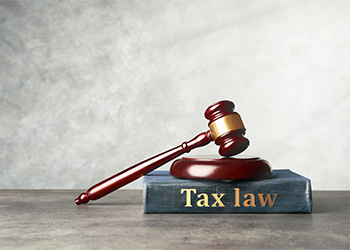What Are Some Possible Penalties of Failing to File Taxes?
April 2, 2025
 The Law Office of Scott N. Tisevich is dedicated to providing professional legal services to individuals in the region. When it comes to taxes, failing to file can have serious consequences.
The Law Office of Scott N. Tisevich is dedicated to providing professional legal services to individuals in the region. When it comes to taxes, failing to file can have serious consequences.
Even if you are unable to pay, filing your taxes is crucial to avoiding harsh penalties.
Tax Penalties for Failure to File in Nevada
Taxpayers in Nevada are subject to penalties if they do not file their taxes on time. These penalties can vary depending on the length of time the taxes are overdue and the amount owed. Whether you fail to file intentionally or out of negligence, there are serious consequences to consider. Here are some of the potential penalties:
Failure-to-file penalty: The IRS imposes a failure-to-file penalty for taxpayers who don’t file their tax return by the due date. This penalty is usually 5% of the unpaid taxes for each month or part of a month that the return is late, with a maximum penalty of 25%.
Failure-to-pay penalty: If you file your tax return but fail to pay the taxes owed, the IRS will impose a failure-to-pay penalty. This penalty is generally 0.5% of the unpaid taxes for each month that the balance remains unpaid, with a maximum penalty of 25%.
Interest on unpaid taxes: In addition to penalties, interest will be charged on any unpaid taxes. The interest rate is set quarterly and is compounded daily. The IRS charges interest on both the unpaid taxes and any penalties.
Civil fraud penalty: If the IRS determines that you failed to file or pay taxes intentionally and fraudulently, you could face a civil fraud penalty. This penalty is 75% of the unpaid tax liability, making it one of the most severe penalties.
The IRS can impose these penalties separately, so taxpayers can face both the failure-to-file and failure-to-pay penalties simultaneously.
Impact of Failing to File Taxes on Your Financial Future
Failing to file taxes doesn't just lead to immediate penalties. There are long-term consequences as well. A significant part of these repercussions stems from how the IRS can treat delinquent tax filers.
Tax liens: The IRS has the right to place a lien on your property to secure payment of your overdue taxes. This lien will affect your credit score and can hinder your ability to obtain loans or mortgages in the future.
Wage garnishments: The IRS can garnish wages if you do not make arrangements to pay your overdue taxes. This means that a portion of your wages will be deducted directly by your employer and sent to the IRS until your debt is paid off.
Seizure of assets: In extreme cases, if taxes remain unpaid for an extended period, the IRS has the authority to seize assets, including bank accounts and personal property. The IRS will sell these assets to recover the unpaid taxes.
These financial consequences not only strain personal finances but can also make it difficult to secure loans or maintain financial stability in the long term.
Possible Criminal Consequences for Failing to File Taxes
While many tax penalties are civil in nature, criminal charges can result from willfully failing to file taxes. If the IRS believes you are intentionally evading your tax responsibilities, you could face criminal charges. Criminal penalties can include:
Tax evasion charges: If you are caught intentionally evading taxes, you could face criminal charges of tax evasion. This crime carries penalties including imprisonment of up to 5 years and substantial fines.
False returns: If you file a tax return with the intent to defraud the IRS, you could be charged with filing a false return. This can result in up to 3 years of imprisonment and significant fines.
Failure to file charges: If you intentionally fail to file your tax returns for multiple years, you may face charges for willful failure to file. These charges can carry prison sentences of up to 1 year for each year you failed to file.
Criminal penalties are more common when the IRS believes that there is clear intent to deceive or defraud the government. However, even a mistaken failure to file can result in an expensive and complicated legal situation.
Statute of Limitations for Tax Filing Penalties
In Nevada, as in other states, the IRS does not forever have the ability to pursue unpaid taxes. There is a statute of limitations that generally limits the IRS's ability to collect taxes, penalties, and interest. The statute of limitations for most tax issues is 10 years from the date the tax is assessed. However, there are a few exceptions:
No statute of limitations in cases of fraud: If the IRS determines that tax evasion or fraud is involved, there is no statute of limitations, and the IRS can pursue the case indefinitely.
Failure to file a return: If you do not file a return at all, the IRS has an indefinite period to collect unpaid taxes and penalties.
Taxpayers who have failed to file taxes should contact a lawyer as soon as possible to discuss the best approach for resolving these matters before they escalate further.
Options for Taxpayers Who Have Failed to File Taxes
If you find yourself in a situation where you have failed to file taxes, you are not without options. The IRS provides a number of programs that can help individuals who want to resolve their tax issues:
Voluntary disclosure program: The IRS has a voluntary disclosure program that allows taxpayers to come forward and report unpaid taxes without facing criminal prosecution. This program can be especially useful if you have failed to file taxes for multiple years.
Installment agreements: If you owe taxes but cannot afford to pay them all at once, the IRS may allow you to set up an installment agreement. This enables you to pay the tax liability over time, making it more manageable.
Offer in compromise: If you are unable to pay your tax debt in full, you may be eligible for an offer in compromise. This program allows you to settle your tax debt for less than the full amount owed if you meet certain criteria.
For those who have already faced penalties, working with a qualified attorney can help reduce or eliminate penalties, explore payment options, and negotiate with the IRS for a more favorable resolution.
How to Avoid Penalties for Failing to File Taxes
The best way to avoid the penalties and consequences associated with failing to file taxes is to be proactive and stay on top of your tax obligations. Below are a few practical steps you can take to avoid issues with the IRS and assure you are compliant with tax laws.
File on time: Even if you cannot pay the full amount you owe, it's important to file your tax return by the due date. Filing on time prevents the failure-to-file penalty, which is more severe than the failure-to-pay penalty. If you're unable to file on time, consider filing for an extension, which gives you an additional six months to submit your return. However, keep in mind that an extension to file is not an extension to pay, so you should still pay as much as you can by the original deadline.
Pay what you can: While filing is important, paying at least a portion of the taxes owed will help reduce the failure-to-pay penalty and interest. The IRS offers payment plans and other arrangements for taxpayers who cannot pay the full amount immediately. Setting up an installment agreement can ease the burden and help you avoid severe financial consequences.
Seek professional help: If you're unsure about your tax situation or need assistance in filing, consult with a tax professional or attorney who has experienced in tax law. Professionals can help you understand your obligations, assist with complicated tax situations, and provide guidance on how to resolve any outstanding tax issues.
Keep accurate records: Proper record-keeping is essential to assuring that your taxes are filed accurately and on time. Maintain organized records of all your financial transactions, income, and deductions. Keeping detailed and up-to-date records can also help protect you in case of an audit.
Consider your long-term financial plan: If you consistently face difficulties paying your taxes or filing on time, it may be a good idea to reassess your financial planning. Working with a financial advisor to better manage your income, savings, and expenditures can help you avoid tax issues in the future.
Contact Us Today
If you have failed to file your taxes and are worried about the possible penalties, an experienced tax attorney can help. Located in Reno, Nevada, the Law Office of Scott N. Tisevich serves clients in Churchill County, Lyon County, Carson City, Story County, Douglas County, and Las Vegas. Reach out today to schedule a consultation and discuss your case in detail.
